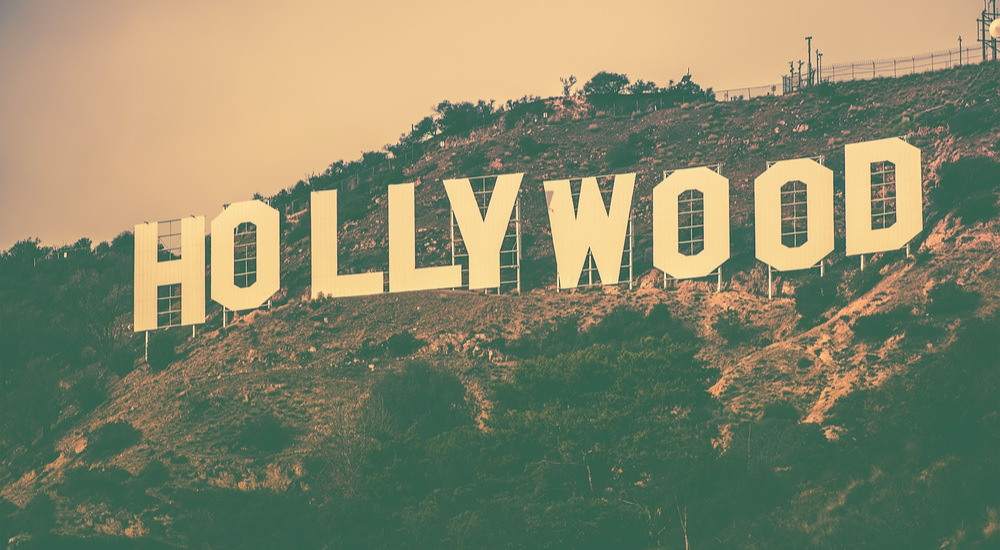By C. Douglas Golden,
Well, here’s a shocker: A pseudo-event involving two wildly disparate movies that happened to be opening on the same date couldn’t save Hollywood from another summer of lackluster sequels and woke-tastic programming.
Although, if you were to look at the raw numbers, you might be misled.
Axios reported Saturday that the industry has seen $6.5 billion in domestic ticket sales. According to industry publication Deadline, $4 billion of that came during the traditional summer moviegoing months.
The year-to-date total is up 25 percent over 2022; while pandemic restrictions have eased and more people feel comfortable going back to the theater, last year was still within the return-to-normalcy window. Looking at those numbers, you might think that Hollywood execs would be more thrilled than if they woke up tomorrow morning and it turned out #MeToo was all just a dream, but Harvey Weinstein was still powerless and in prison.
However, there’s one dreadful neologism that should explain why the summer movie results are still terrible while sounding terrific: “Barbenheimer.”
As Axios noted, without the box-office overperformance of two heavily hyped unlikely successes released on the same day — the Skittles-hued political landmine “Barbie” and the reflective Christopher Nolan biopic “Oppenheimer” — “the summer box office is a horror show.”
Those two films, which have grossed roughly $900 million in North America, represent 22 percent of the box-office take this summer, Deadline reported. Without those two anchors, the summer was a sea of disappointments.
“Pricey misfires included ‘The Flash’ ($268 million worldwide) and ‘Indiana Jones’ ($381 million). Even Tom Cruise couldn’t deliver as ‘Mission: Impossible – Dead Reckoning Part 1′ pulled in $552 million, the series’ lowest since ‘Mission: Impossible III’ in 2006,” Axios noted.
And then, after Americans were marked safe from the “Barbenheimer” pseudo-event, the rising tide didn’t lift all ships. Most of the late summer releases fizzled, too — most notably the DC Comics film “Blue Beetle,” which took home just $84 million in two weeks.
Not that this is a surprise — estimates in July had “Blue Beetle” losing up to $200 million at the box office and needing at least $250 million in receipts to turn a profit. It was a sobering reminder that the overperformance of “Barbie” and “Oppenheimer” can’t wallpaper over those “pricey misfires.”
A good number of those bombs, it’s worth noting, were dripping with a slathered-on coat of wokeness. For instance, “Blue Beetle” was marketed as the first major superhero film to feature a Latino lead.
In an approving review for RogerEbert.com, Robert Daniels noted with some degree of approval that the villain played by Susan Sarandon “is hardly configured; it doesn’t take much guessing to know they’re a metaphor for the past and present ills of white-American imperialism” and that the film’s “political invocations, such as an allusion to the School of the Americas (a major topic to cover in a big-budget film) and a harrowing scene of a raid upon the Reyes home, while overwrought in its use of slow motion, humanizes endangered emigrant families, are daring subplots to add.”
Well, that dare didn’t quite pay off, now, did it?
“The Flash,” meanwhile, was the first superhero film with a star who identified in real life (not the film’s universe) as nonbinary, using “they”/”them” pronouns. Actor Ezra Miller’s myriad legal struggles (also in real life) — combined with a convoluted plot involving time travel and two different versions of Batman and Superman, among other weirdnesses — kept audiences away from the cinema for that one.
Pixar’s woke tale “Elemental” also flopped (sample review: “When a significant part of the conflict in a cartoon about talking elemental beings turns on urban infrastructure problems, building code violations, and city bureaucracy, something has gone off the rails”), as did the latest Disney live-action remake that existed for no reason but to racially swap the lead: “The Little Mermaid,” with Halle Bailey as Ariel, came in under $300 million, according to IndieWire — not enough to recoup costs for an expensive production.
It’s also worth noting that non-woke films also flopped. “Fast X” — which, I’m assuming from my desultory knowledge of “Fast and Furious” iterations, includes lots of loud CGI cars doing impossible things and innumerable invocations of the word “family,” not really “Democracy Now!” territory — underperformed, as did “Transformers: Rise of the Beast” and “Guardians of the Galaxy Vol. 3.”
The last one was Disney-produced, so perhaps the politically inclined could blame it on that company’s image problems. “Fast X” was put out by Universal and “Transformers” by Paramount, however, so that excuse doesn’t hold for those duds.
But, perhaps the surest sign the times are a-changin’ in Hollywood was the biggest positive surprise of the summer, at least from a purely monetary standpoint: “Sound of Freedom,” the independently produced drama about child sex-trafficking, grossed over $180 million and was a shock blockbuster — in spite of a hue and cry from the liberal media, which declared it a QAnon dog whistle, inter alia.
And then there’s the storm on the horizon: the writers/actors strike that has paralyzed Hollywood and almost all non-independent productions. “The spring movies will wind up becoming the summer movies next year,” one insider told Deadline, a prediction the outlet said was laden “with doom and gloom.”
So, is it wokeness, sequelitis or changed post-pandemic movie habits that contributed to non-“Barbenheimer” disappointments?
Yes, yes and yes, probably.
It’s difficult to point to a single cause other than the fact Hollywood is an ossified agitprop machine that still believes that if it churns it out, you have to watch it, no matter how much it costs or whether it conflicts with your worldview. Everyone else is seeing it, so why aren’t you? You’re going to miss out on the discussion. Don’t be the one who isn’t talking about [insert blockbuster here]. Don’t you want to be up on pop culture?
Well, as it turns out, no. People aren’t seeing everything pushed in our faces anymore, and Hollywood’s grandiose budgets and inattention to half of America’s sociopolitical and religious beliefs suddenly seem unsustainable.
Of course, they never were sustainable in the first place, and they can’t just pull a “Barbenheimer” every year to make up the difference.
(“Coming as soon as we resolve this pesky strike: ‘Feynken,’ the same-day release of a biopic of quirky, bongo-playing Manhattan Project physicist Richard Feynman, and the ‘Barbie’ sequel ‘Ken!’” Yeah, I don’t see that working again, either.)
Ah well. This all couldn’t have happened to a better bunch of people.
This article appeared originally on The Western Journal.




